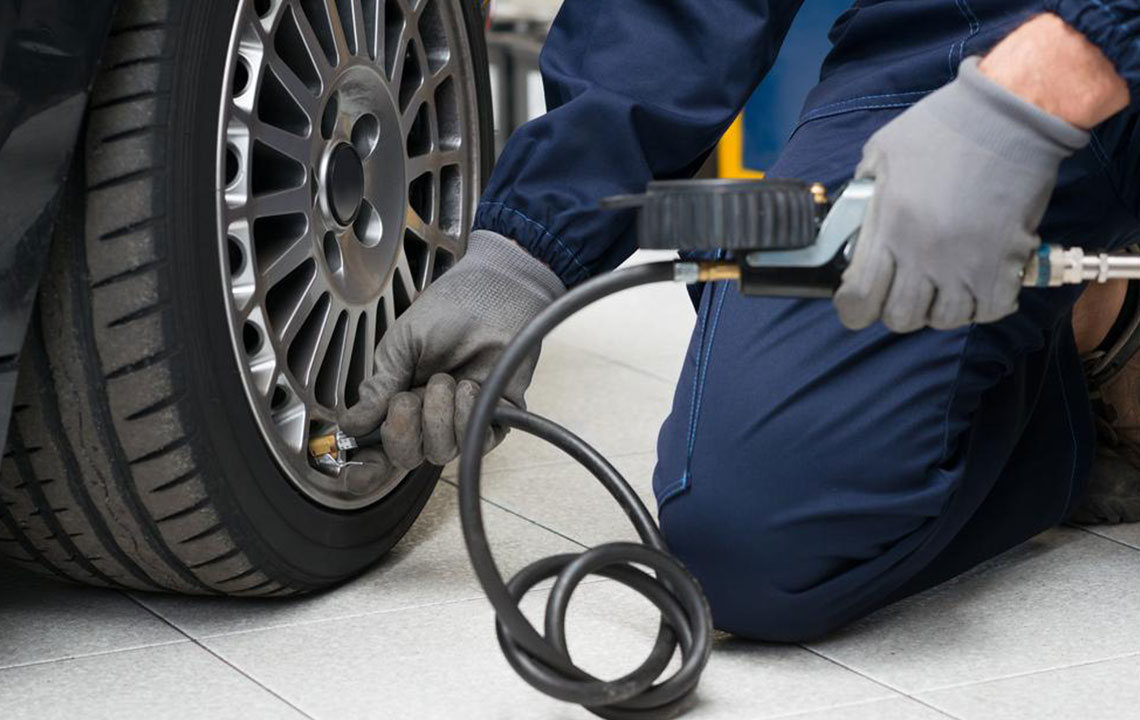Michelin's Leadership in Eco-Friendly Tire Innovation and Sustainability Initiatives
Michelin leads in eco-friendly tire innovation by integrating renewable energy, recycling initiatives, and sustainable tire development. Their efforts include solar energy systems at manufacturing plants, recycling waste materials, and producing energy-efficient tires for electric vehicles, showing a strong commitment to environmental responsibility. Michelin’s legacy of innovation, from radial tires to modern silica technology, underscores their dedication to sustainable mobility solutions. As a pioneer in green practices, Michelin exemplifies how the tire industry can evolve toward a greener, more sustainable future, balancing performance with environmental care.

Michelin's Leadership in Eco-Friendly Tire Innovation and Sustainability Initiatives
Michelin, one of the world's most renowned tire manufacturers, continues to set the benchmark in environmental responsibility within the automotive tire industry. With a long-standing commitment to sustainability, Michelin actively integrates eco-friendly practices into every stage of its manufacturing process, pioneering technological innovations aimed at reducing environmental impact. Their initiatives go beyond traditional tire production, emphasizing energy efficiency, recycling, and sustainable development, positioning Michelin as an industry leader dedicated to ecological preservation and green mobility solutions.
One of Michelin’s key strategies involves the adoption of cutting-edge technologies to minimize energy consumption and reduce greenhouse gas emissions. For instance, their Canadian manufacturing plant is equipped with a state-of-the-art solar wall, which harnesses solar energy to generate clean power, significantly decreasing reliance on fossil fuels. This solar installation is part of a broader initiative aimed at integrating renewable energy sources into their operations, contributing substantially to their overall carbon footprint reduction goals.
From 2005 to 2011, Michelin successfully achieved a remarkable 20% reduction in carbon emissions across its manufacturing bases. This achievement reflects the company's unwavering dedication to environmental sustainability coupled with operational efficiency. Their factories have incorporated energy-efficient machinery and optimized production processes, thereby reducing overall emissions and operational costs.
In addition to energy-saving measures, Michelin emphasizes material recycling and waste reduction. The company has developed innovative processes for recycling rubber and metals, transforming waste products into new tires and components, thereby closing the sustainability loop. This not only reduces waste sent to landfills but also decreases the need for virgin raw materials, conserving natural resources and decreasing the environmental footprint of tire manufacturing.
Innovation in tire design further underscores Michelin’s eco-friendly focus. The company pioneered the development of radial tires in 1946, which drastically improved fuel efficiency by reducing rolling resistance by approximately 30%. These tires have become industry standards, significantly contributing to lower fuel consumption and reduced emissions for millions of vehicles worldwide. Today, Michelin continues to advance this legacy by integrating silica technology and other sustainable materials that enhance tire performance while minimizing environmental impacts.
Further demonstrating their innovation and commitment to green mobility, Michelin launched the Energy E-V tire designed specifically for electric vehicles (EVs). This tire improves the efficiency and range of EVs by optimizing rolling resistance and durability. It offers drivers enhanced performance while supporting the global shift toward cleaner transportation methods, aligning with the broader goal of reducing transportation-related emissions and combating climate change.
Michelin’s proactive environmental strategies extend into their product development and corporate culture. The company encourages a circular economy approach by designing tires that are easier to recycle and reuse, promoting sustainability throughout the product lifecycle. Their investment in research and development aims to create even more eco-friendly and high-performance tires, reinforcing their role as a pioneer in sustainable mobility innovations.
Overall, Michelin’s comprehensive sustainability initiatives exemplify their leadership in advancing environmentally friendly practices within the tire industry. They are committed to reducing their ecological footprint while providing consumers with safer, more efficient, and eco-conscious tires. Through continuous technological innovation, renewable energy adoption, and waste reduction efforts, Michelin sets a high standard for sustainability in the automotive sector, demonstrating that responsible business practices can drive progress, profitability, and environmental conservation simultaneously.





